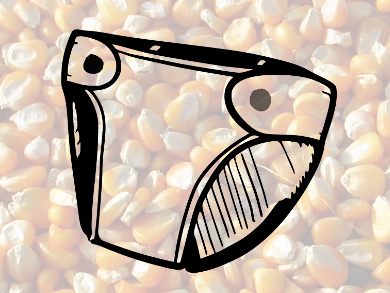Superabsorbent polymers can absorb and retain large amounts of water relative to their weight. They are used, for example, in diapers, but also in agriculture, medicine, or food preservation. Commonly, sodium polyacrylate is used. More sustainable, bio-based materials could help to prevent environmental problems caused by such synthetic polymers.
Bin Li, Huazhong Agricultural University, Wuhan, China, and colleagues have developed a one-step synthesis procedure for acrylate superabsorbent polymers based on corn starch. The team prepared an alkaline starch solution and added urea (to modify the final product’s structure), as well as acrylic acid (AA) as a monomer, ammonium persulfate (APS) as an initiator, and N,N‘-methylenebisacrylamide (MBA) as a crosslinker. They obtained the desired polymer in the form of a hydrogel, which was dried before testing.
The resulting material has a water absorbency of 2704 g/g for distilled water, 100 g/g for physiological saline solution, and 96 g/g for artificial urine. The one-step synthesis reduces water consumption and waste. The urea added during synthesis was shown to significantly increase the polymer’s water absorption by introducing pores and creating amino groups in the material.
- One-step synthesis of corn starch urea based acrylate superabsorbents,
Ting Guo Liu, Yun Tao Wang, Jun Guo, Tian Bao Liu, Xin Wang, Bin Li,
J. Appl. Polym. Sci. 2017.
DOI: 10.1002/app.45175




